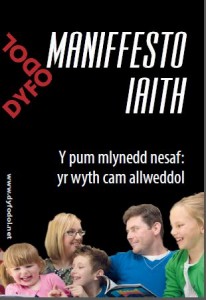On Monday November 23,representatives of the language organisations involved with the Gwynedd and Môn Housing and Planning Campaign Committee met with the officers and councillors responsible for the two counties’ Local Development Plan. The delegation included representation from Cylch yr Iaith), Dyfodol i’r Iaith, Canolfan Hanes Uwchgwyrfai and Cymdeithas yr Iaith Gymraeg.
The proposed plan to build almost 8,000 new homes has led to an outcry by the Campaign Committee, who are concerned that it will prove harmful to the Welsh language within the communities of both counties. They have highlighted the serious flaws in the Councils’ assessment of the Plan in relation to its impact on the Welsh language. The fundamental flaw, according to the organisations, being the fact that independent external expertise was not employed to assess the Welsh-language impact.
Following the meeting, the following statement was made by the Campaign Committee:
“Our concerns are based on the fate of Welsh as a community language within Gwynedd and Môn and the impact of the Local Development Plan on its situation. Suffice to say, the Welsh language faces the greatest crisis in its history, with the number of communities where over 70% of the population speak the language falling from 59 to 49 between 2001 and 2011. With the exception of one community in Conwy, all that remains of these communities are limited to Gwynedd and Môn.
“The Welsh Government’s guidelines for Local Authorities emphasise that the evidence used as a basis for the Local Development Plan has to be robust. We highlighted as part of the comments made in response to the consultation over 40 flaws, including absence of evidence, unsatisfactory evidence, unreliable evidence and inconsistencies.
“Our plea to Gwynedd and Môn Councils today is that the officers and councillors who are responsible for the Plan give fair and full considerations to our comments, rectify the flaws and see to it that it contains nothing that can have an adverse effect on the situation of the Welsh language within our communities. It is essential to ensure that housing and planning policy contribute to the strengthening of the language.”
At the end of January, the Committee responsible for the Plan will decide on responses to all the comments received during the consultation period, before a final version of the Plan is presented to the Welsh Government. A public inquiry will be held next year, and representatives of the Campaign Committee have registered their wish to contribute. The final version of the Plan will be adopted at the beginning of 2017.

